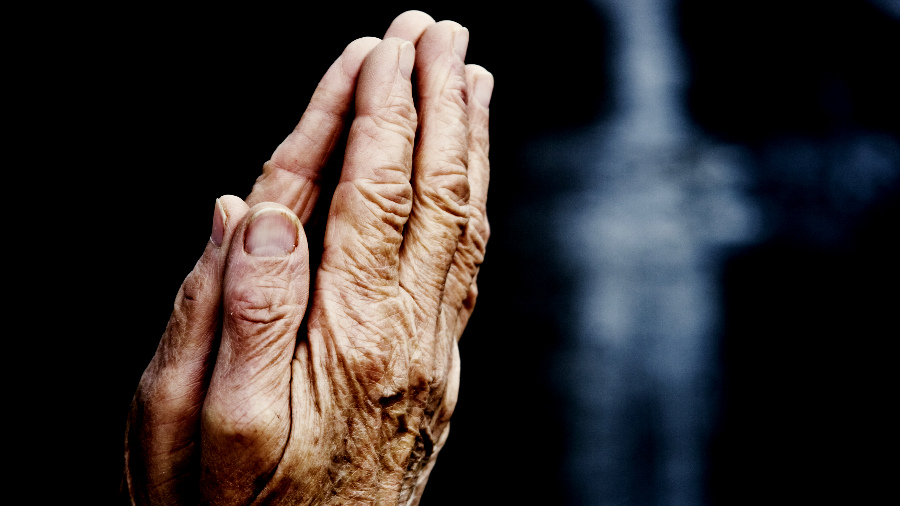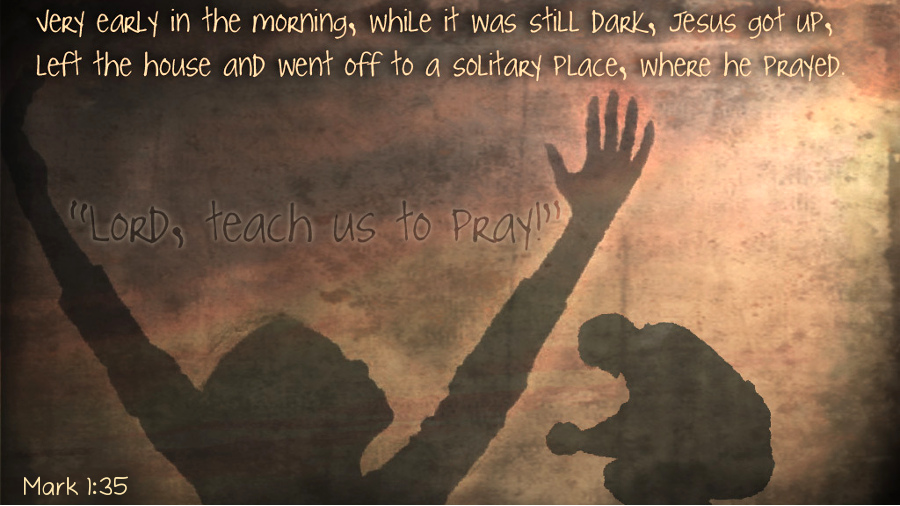The new community of Jesus' followers in Jerusalem quickly multiplied and faced a series of potentially crippling crises. One of these crises involved widows, especially widows who didn't speak the local language — Aramaic or Hebrew (Acts 6:1). The early believers from Pentecost had come from many different lands (Acts 2:5-11), and some had not returned home. Among these non-Jewish speaking folks were hungry widows, neglected by their fellow believers in the regular food distribution. People who didn't speak the local language were upset. More than a few were angry. Many people in the predominant church culture hadn't even noticed the problem because they spoke the "correct" language, and "their" widows were not being overlooked in the daily distribution of food.
Prejudice and neglect threatened the fabric of a fellowship known for sharing life (Acts 2:44, 47, 4:32) and not having a needy person among them (Acts 2:45, 4:32-35). This failure could thwart their witness as followers of Jesus while their neglecting widows, the fatherless, and the foreigner among them was direct disobedience to the will and teaching of God (Deuteronomy 10:18-19; Isaiah 1:23; Psalm 68:5, 82:3). Women worthy of respect and needing care were forgotten and hungry. The neglect of these needy women undermined the disciples' claim to live in harmony with a heart for the things of God (James 1:27; Deuteronomy 27:19).
What did the apostles, Jesus' hand-selected leaders for his new church, do in response to this crisis?
They continued to devote themselves to a higher priority, "the word of God and prayer" (Acts 6:4).
What?
You read it correctly. Before doing something, the apostles reminded the people of their highest priorities as leaders: kneeling in prayer and sharing the good news of Jesus. In the face of a fellowship-threatening crisis, they prayed!
More than three decades ago, as a young minister, I answered the knock on the door of the church leadership's meeting room. When I stepped outside, I discovered a red-faced, angry, long-time friend of my parents — he knew them before I was born. He verbally pressed me to let him into that meeting. As firmly, but also with as much calm as I could muster under attack from a long-time family friend and someone twice my age, I refused. "It's prayer night," I reminded him. "The elders and ministry team are gathered for prayer. That is our only agenda. Our prayer time will take several hours. There is no other plan tonight other than prayer. No intrusions are allowed except in the direst of emergencies."
"I wish I had time just to sit around and pray," my friend said impatiently. "This was an important matter about our missions program that I needed to get approved. Tonight!" He stormed away in an angry huff.
Several weeks later, in one of his mission meetings, a fellow mission committee member quoted this frustrated brother's hero when my friend recounted what he considered a waste of time by the church leadership. What was that significant quote my friend needed to hear? "I only get done what I pray for!"
Over time, this family friend mellowed. He became a man of prayer. Our congregation raised up seventeen long-term missionaries that we supported in world missions, and over 600 of our members went on international mission trips. His zeal for mission work never dimmed, but he also learned that many missions missteps could have been prevented through prayer and waiting on the guidance of the Holy Spirit. He experienced the power of prayer, the leading of the Holy Spirit, and a clear sense of our specific call to world missions, which were essential. He realized he needed a new commitment to guide his life: "Don't just do something; kneel and pray!"

Today, many Christians fret, complain, post on social media, and stomp around, worried about what is happening in the world, their churches, and the dominant culture. They sense a decline in faith and righteous living. Most of all, they worry about the decrease in the number of people at their church services. These worried churchgoers press their church leaders to "do something" to fix the problems. They want something done immediately!
"Don't just sit there, do something!" they demand.
All too often, desperate leaders respond in one of two ways: they either "just sit there" frozen and fearful or "they do something" to try to make things better. Those who "just do something" start trying all sorts of things they've heard about in other congregations. They reach for the latest fad. They push the newest quick fix. They copy other churches or follow the advice of the latest "how-to" article from a so-called expert.
After several decades of oscillating between doing nothing ("just sit there") and trying quick fixes ("do something"), most Christian groups find themselves in worse shape than when they started. Their churches have a much higher percentage of gray hair than ever and less patience for the slower-paced transformation based on a commitment to prayer and a focus on living on mission rather than trying new things for the sake of doing something.
"Don't just sit there, do something!" is not the answer. It wasn't the answer to the problem of the neglected widows in the early days of the growing new Jesus movement. It certainly is not the answer to today's congregation with genuine challenges. But, just sitting there while things continue to fall apart is not an answer.
In reality, our problems today don't approach the challenges of those first-century believers. Their politics were more brutal. Their culture was more extreme. Their travel, communication, and opposition were all much more problematic. Opposition and persecution were more pervasive. But, the commitment of their leaders was different. They chose to live by the value, "Don't just do something; kneel and pray!"
In the crisis with the neglected Greek-speaking widows, the apostles dedicated themselves to prayer and the message of Jesus (Acts 6:2, 4) just as they had from the beginning (Acts 1:14, 2:42). They asked the larger fellowship of believers for their help in finding wise, spirit-filled, servant-hearted men to attend to the widows. They then gave these newly chosen servant leaders authority to do the work assigned to them, with the freedom to decide how best to do it (Acts 6:3-6). The result was a sizeable increase in believers when the problem was solved, which ended up reaching some people that they had not been able to reach fully, before their crises:
So the word of God spread. The number of disciples in Jerusalem increased rapidly, and a large number of priests became obedient to the faith (Acts 6:7).
The apostles' actions developed new leaders while the apostles continued their primary task — devotion to prayer and the message of Jesus.
"Don't just do something; kneel and pray!"
"I only get done what I pray for!"

Where do we start our commitment to prayer as leaders?
I often point to three things to bless leadership teams in their regular focus on prayer, and these will be the focus of our next few weekly posts on Thursday:
- Re-acquaint ourselves with "The Lord's Model Prayer" in Matthew 6:9-13 and use the surrounding principles as we pray and its primary themes as the kinds of things for which we pray.
- Spend time in James's short, pithy, and practical book, and especially dig deeply into the focus on prayer that Jesus' half-brother emphasizes. James stitches his short message together with clear teaching on prayer.
- The New Testament (not to mention the Psalms) is full of prayers and prayer language. Get a clean copy of a Bible and highlight the prayers. Once highlighted, begin to pray them, personalizing the prayers and praying those prayers for our brothers and sisters, congregations, and church leaders. We want our prayers to be personal and Spirit-led, but sometimes we need more than our own words to pray — we need the proven prayers that have sustained God's people for centuries.










Reader Comments
Archived Facebook Comments